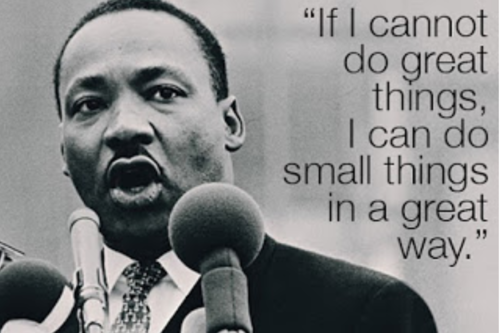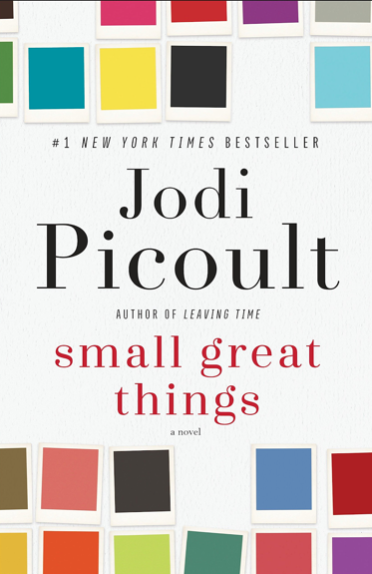
Small Great Things was published in 2016 by Jodi Picoult. The novel is said to be one of the most important books Picouly has written due to the book’s dissection of racism in the United States. Small Great Things touches both ends of the spectrum; blatant white supremacy, and subconscious prejudice from well intentioned white people.
Ruth Jefferson is an African American labor and delivery nurse. She lives in a primarily white neighborhood and her teenage son goes to a predominantly white private school. Because she is a different race than most of her community and she knows that this could be a problem for some, Ruth keeps to herself, follows all the rules, and is kind to everyone. At her workplace, she is dignified, respectful, and extremely knowledgeable. One day, however, her daily routine is turned upside down.
Ruth arrives at work in the morning for her shift and begins to care for Brittany Bauer and her newborn son Davis Bauer, who was born the night before. Brittany and her husband, Turk, are reserved and unfriendly, and Ruth soon learns from her supervisor that they don’t want her touching their baby because she is black and they are white supremacists. Ruth is astonished that she is being punished for something that is entirely out of her control, but she still complies. Later, Ruth is left alone in the nursery with baby Davis while her co-worker leaves on an emergency call and asks Ruth to watch Davis for just 20 minutes. Suddenly, Davis stops breathing, and Ruth is conflicted over if she should defy her supervisor’s orders or resuscitate Davis. She pauses for a moment, then begins procedures to try to save him. When her supervisor walks in the door and asks if she has touched the baby, Ruth frantically replies that she hadn’t, in an attempt to keep her job.
Unfortunately, Davis Bauer does not survive, and his parents file a lawsuit against Ruth. The story continues as Ruth, a perfect, law-abiding citizen, finds herself unrecognizable after being accused of murder.
Ruth’s public defender, Kennedy McQuarrie, a white woman, forms a relationship with Ruth as they navigate her lawsuit. Kennedy is well meaning, but she isn’t worried about the racist intentions at the base of the entire accusation. Instead, she tells Ruth that it is safest to leave the topic of race outside the courtroom.
Ruth, a perfect, law-abiding citizen, finds herself unrecognizable after being accused of murder.
The novel switches perspectives between Ruth, Kennedy, and Turk Bauer. Throughout the novel, Ruth rediscovers her community and family that she had lost sight of while she was trying to please her white peers. Kennedy learns a lot from Ruth about racism in America, and she begins to identify her own subconscious prejudices. Readers can get a glimpse into the perspective of a white supremacist, as Turk navigates his troubles, anger, and frustration with life.
This novel has a really nice pace to it; there aren’t dull periods then dramatic climaxes. Rather, every page is interesting and hard to put down. It is a great choice for a summer read, whether you’re on the beach or you need something to do in your house. It’s a novel that you can easily get lost in, but it is also very relevant to current events in the United States, and will teach you a lot about systemic racism.
The title of the book is based on a quote from Martin Luther King Jr., who said, “if I cannot do great things, I can do small things in a great way.” This quote encapsulates the themes of this novel: empathy, hard-work, racial equality, and striving to be the best person you can be.
I highly recommend this novel and would give it a rating of five out of five stars.

Small Great Things
Jodi Picoult
5/5
